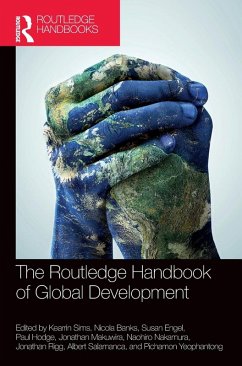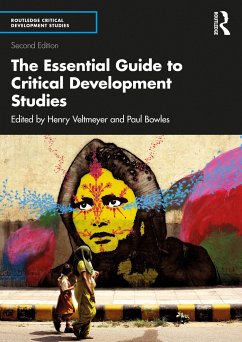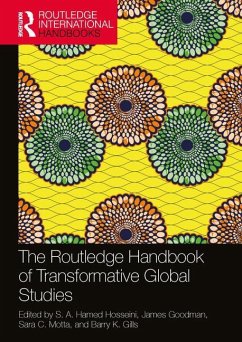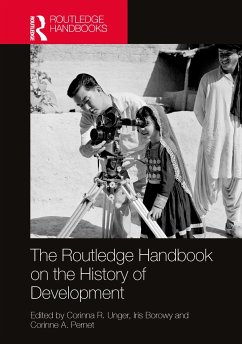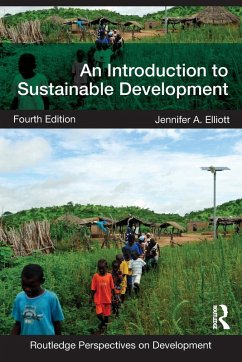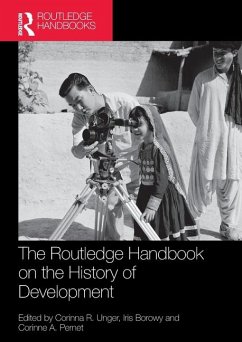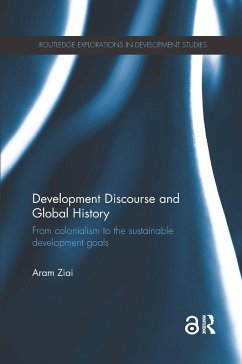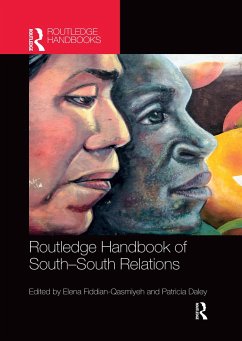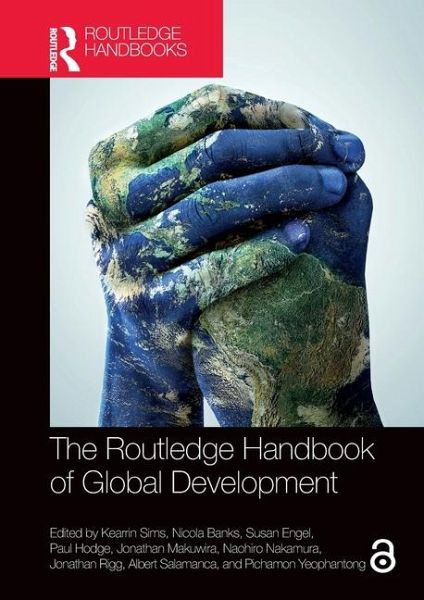
The Routledge Handbook of Global Development
Versandkostenfrei!
Versandfertig in 6-10 Tagen
49,99 €
inkl. MwSt.
Weitere Ausgaben:

PAYBACK Punkte
25 °P sammeln!
This Handbook provides a comprehensive analysis of some of the world's most pressing global development challenges - including how they may be better understood and addressed through innovative practices and approaches to learning and teaching.Featuring 61 contributions from leading and emerging academics and practitioners, this multidisciplinary volume is organized into five thematic parts exploring: changes in global development financing, ideologies, norms and partnerships; interrelationships between development, natural environments and inequality; shifts in critical development challenges...
This Handbook provides a comprehensive analysis of some of the world's most pressing global development challenges - including how they may be better understood and addressed through innovative practices and approaches to learning and teaching.
Featuring 61 contributions from leading and emerging academics and practitioners, this multidisciplinary volume is organized into five thematic parts exploring: changes in global development financing, ideologies, norms and partnerships; interrelationships between development, natural environments and inequality; shifts in critical development challenges, and; new possibilities for positive change. Collectively, the handbook demonstrates that global development challenges are becoming increasingly complex and multi-faceted and are to be found in the Global 'North' as much as the 'South'. It draws attention to structural inequality and disadvantage alongside possibilities for positive change.
The Handbook will serve as a valuable resource for students and scholars across multiple disciplines including Development Studies, Anthropology, Geography, Global Studies, Indigenous and Postcolonial Studies, Political Science, and Urban Studies.
The Introduction of this book is freely available as a downloadable Open Access PDF at http://www.taylorfrancis.com under a Creative Commons Attribution-Non Commercial-No Derivatives (CC-BY-NC-ND) 4.0 license.
Featuring 61 contributions from leading and emerging academics and practitioners, this multidisciplinary volume is organized into five thematic parts exploring: changes in global development financing, ideologies, norms and partnerships; interrelationships between development, natural environments and inequality; shifts in critical development challenges, and; new possibilities for positive change. Collectively, the handbook demonstrates that global development challenges are becoming increasingly complex and multi-faceted and are to be found in the Global 'North' as much as the 'South'. It draws attention to structural inequality and disadvantage alongside possibilities for positive change.
The Handbook will serve as a valuable resource for students and scholars across multiple disciplines including Development Studies, Anthropology, Geography, Global Studies, Indigenous and Postcolonial Studies, Political Science, and Urban Studies.
The Introduction of this book is freely available as a downloadable Open Access PDF at http://www.taylorfrancis.com under a Creative Commons Attribution-Non Commercial-No Derivatives (CC-BY-NC-ND) 4.0 license.





